In the battle for AI supremacy, money has become the least valuable thing.
Author: Xinxin
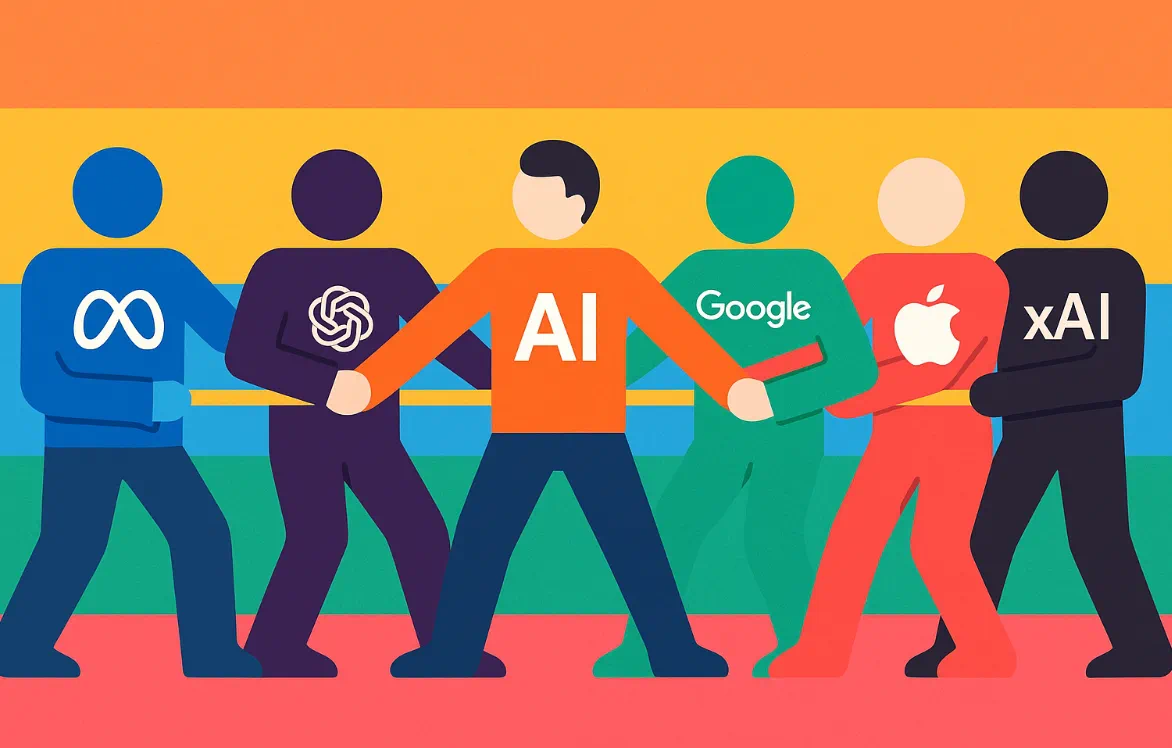
OpenAI's Vibe Coding dream has been shattered.
On July 11 local time, it was reported that Google DeepMind successfully "recruited" the core team of the AI startup Windsurf. Just recently, OpenAI was negotiating a $3 billion acquisition of Windsurf, and Geek Park was discussing it extensively on their podcast. Unexpectedly, the collaboration between the two parties did not materialize, instead allowing Google to bolster its AI capabilities.
According to reports, Google will pay $2.4 billion (approximately 17 billion RMB) in licensing fees and compensation to bring Windsurf co-founder Douglas Chen and some senior researchers to Google, assisting the latter in AI programming projects. Meanwhile, Windsurf will maintain independent operations and can still license its technology to other companies.
A familiar formula, a familiar taste.
Just a month ago, Meta did something similar—Meta spent a huge sum to acquire nearly half of Scale AI's shares and subsequently brought its young CEO on board as its Chief AI Officer.
Whether it's Meta, Google, Apple, or Musk's xAI, everyone is currently competing for talent, either fully integrating star startup teams or directly poaching from OpenAI and Anthropic.
Major players are luring talent with compensation packages worth tens of millions or even hundreds of millions of dollars, rapidly "blasting" rival teams. CEOs personally make calls, organize meetings, or invest in acquisitions, all to secure a few founders and key technical staff, while the poached rivals are forced to offer even higher retention bonuses to "stop the bleeding."
It can be said that the "AI talent war" in Silicon Valley has reached a frenzy, with 99% of the money ultimately flowing to 1% of top AI talent.
01 Meta's Crazy Spending, Draining Competitors
Among all the giants, Meta and Zuckerberg's poaching style is perhaps the most high-profile and aggressive.
In June of this year, Meta restructured its AI team, officially announcing the establishment of a "Super AI Laboratory," and spent $14.3 billion to acquire 49% of the data labeling startup Scale AI, directly appointing the company's young CEO Alexandr Wang as Meta's Chief AI Officer, essentially "buying a company and getting an executive."
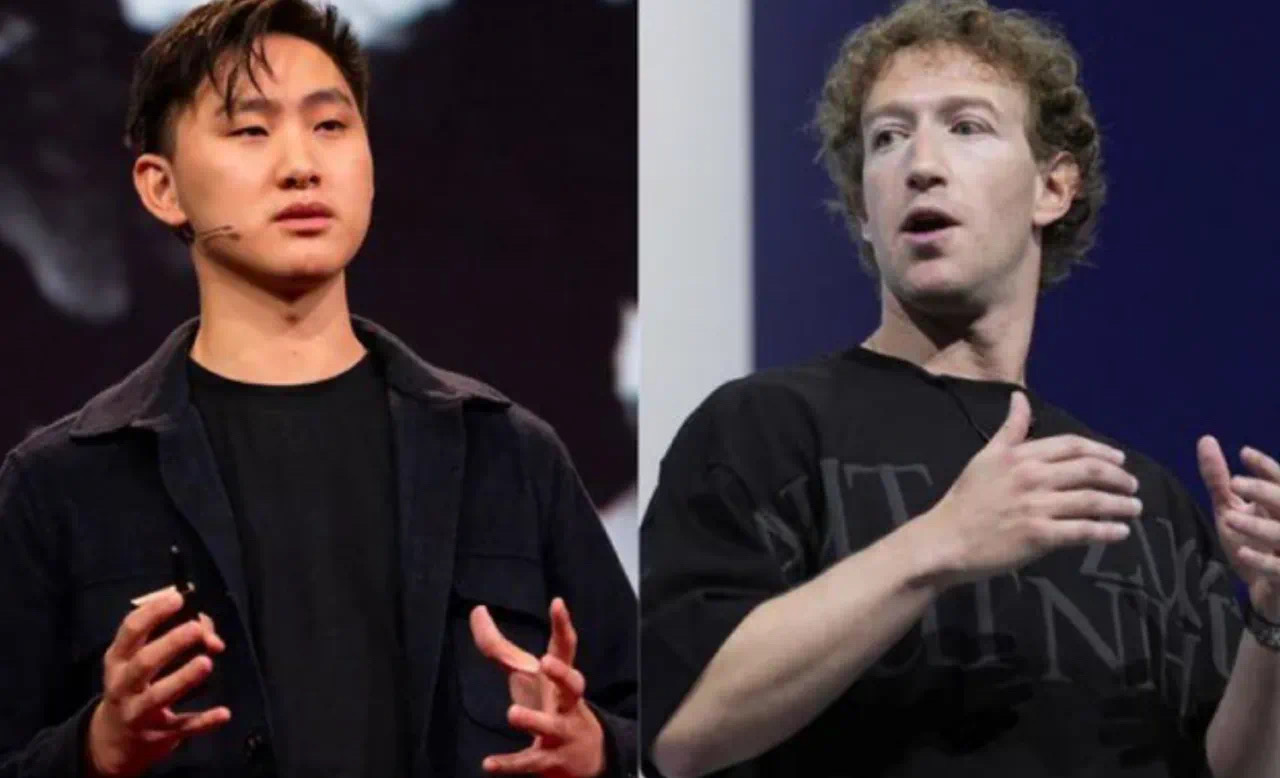
Alexandr Wang with Zuckerberg | Image Source: Internet
In addition to buying talent through company investments, Meta is equally generous with individual offers, especially targeting top researchers from OpenAI and Google, as well as Apple and Anthropic.
Originally, those individuals commanded annual salaries in the millions or tens of millions of dollars, along with stock options, making them industry leaders. To lure away core members from OpenAI, Meta offered a "big package" worth "$300 million over four years," with a significant amount of stock vesting in the first year, amounting to $100 million. Although Meta claims these extreme offers are limited to "a few leadership positions," they are still unprecedented in the tech circle.
Correspondingly, OpenAI, which possesses top AI models, has become the biggest target for poaching, experiencing severe talent loss, almost turning into an "AI talent supermarket" being raided by major players. Meta has at least heavily poached seven top researchers and model developers from OpenAI.
An OpenAI executive described the poaching by Meta as "someone breaking into our home and stealing things." Sam Altman certainly feels the situation is dire but claims that OpenAI's "best" employees have not been poached.
"Meta has started offering huge contracts to many people on our team," Sam Altman said in his brother's podcast in June, "for example, a signing bonus of $100 million per year, with salaries even higher than that." "But at least so far, none of our best employees have decided to accept his terms." Meta reportedly attempted to poach one of OpenAI's chief researchers and an AI architect from Google, but both attempts were unsuccessful.
Sam Altman also sarcastically remarked that Meta is obsessed with offering high salaries to employees rather than fulfilling the mission of achieving AGI, which may not create "a good culture."
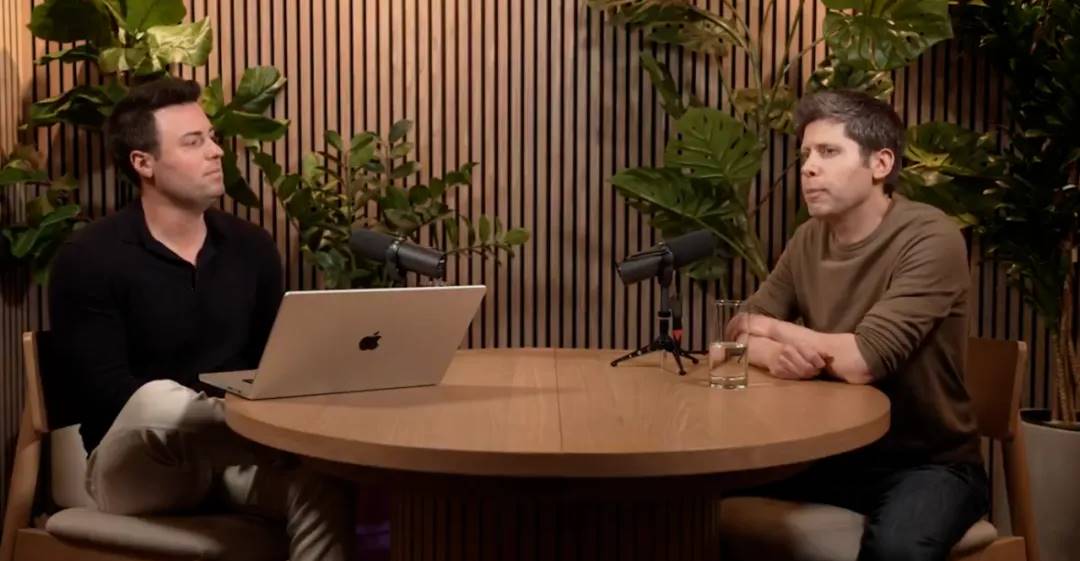
Sam Altman discussing the Meta poaching incident on a podcast | Image Source: Internet
Even so, aside from using so-called "culture" and "vision" to retain talent, OpenAI still has to pay a price in the poaching war, needing to adjust salaries and offer some employees retention bonuses of $1 million to $2 million, along with more equity as loyalty rewards, to persuade key researchers to stay after receiving external offers. It is said that the board crisis and organizational turmoil over the past two years have also affected OpenAI employees' sense of belonging, making some rivals and headhunters feel that "poaching from OpenAI is easier."
However, OpenAI is not just passively taking hits; it has also been poaching talent back, not only reclaiming a researcher from Meta but also poaching a senior VP and several core engineers from Musk's xAI and Tesla, some of whom participated in the construction of Musk's supercomputer Colossus. Musk and Sam Altman have long had a falling out over differences in direction and are currently even suing each other.
In such a compensation environment, even the usually aloof Apple has had to change its style. Apple originally discouraged researchers from publishing papers due to its culture of secrecy, making it difficult to attract top AI scholars. In contrast, companies like Google, Meta, and Microsoft have long allowed researchers to publish papers and open-source some tools, which can enhance their influence. By 2025, Apple seems to be starting to relax some restrictions and is heavily investing in internal large model projects.
Even so, the head of Apple's foundational model research was still poached by Meta with a "big package" exceeding $100 million, a salary rumored to surpass that of all Apple executives except CEO Tim Cook, and Apple did not attempt to counter or match Meta's offer.
To compete for AI talent, some companies are also adjusting measures, shortening vesting periods; for example, Google has reduced the vesting period for some AI hires from four years to three years to enhance compensation attractiveness. Signing bonuses worth tens of millions of dollars are also not uncommon.
Additionally, it is worth noting that the offers from the giants are not merely high salaries but also include stock and one-time signing bonuses. Some offers are said to come with "explosive deadlines"—sign within 24 hours, or they become void.
Currently, in the entire Silicon Valley AI circle, some resumes resemble a transfer market: having worked at Google, upgraded to OpenAI, then poached by Meta, and later possibly starting a new company, securing over a hundred million in funding based on previous experience. Of course, some people choose to jump back and forth; for example, an engineer poached by xAI returned to OpenAI in less than a year. Others choose to reject Meta's high-paying packages simply because they do not want to "compete."
Due to Meta elevating signing fees to "professional star" levels, an image comparing a Chinese AI researcher with soccer superstar Cristiano Ronaldo, alongside their signing price comparison, has even become a popular meme in the tech circle.
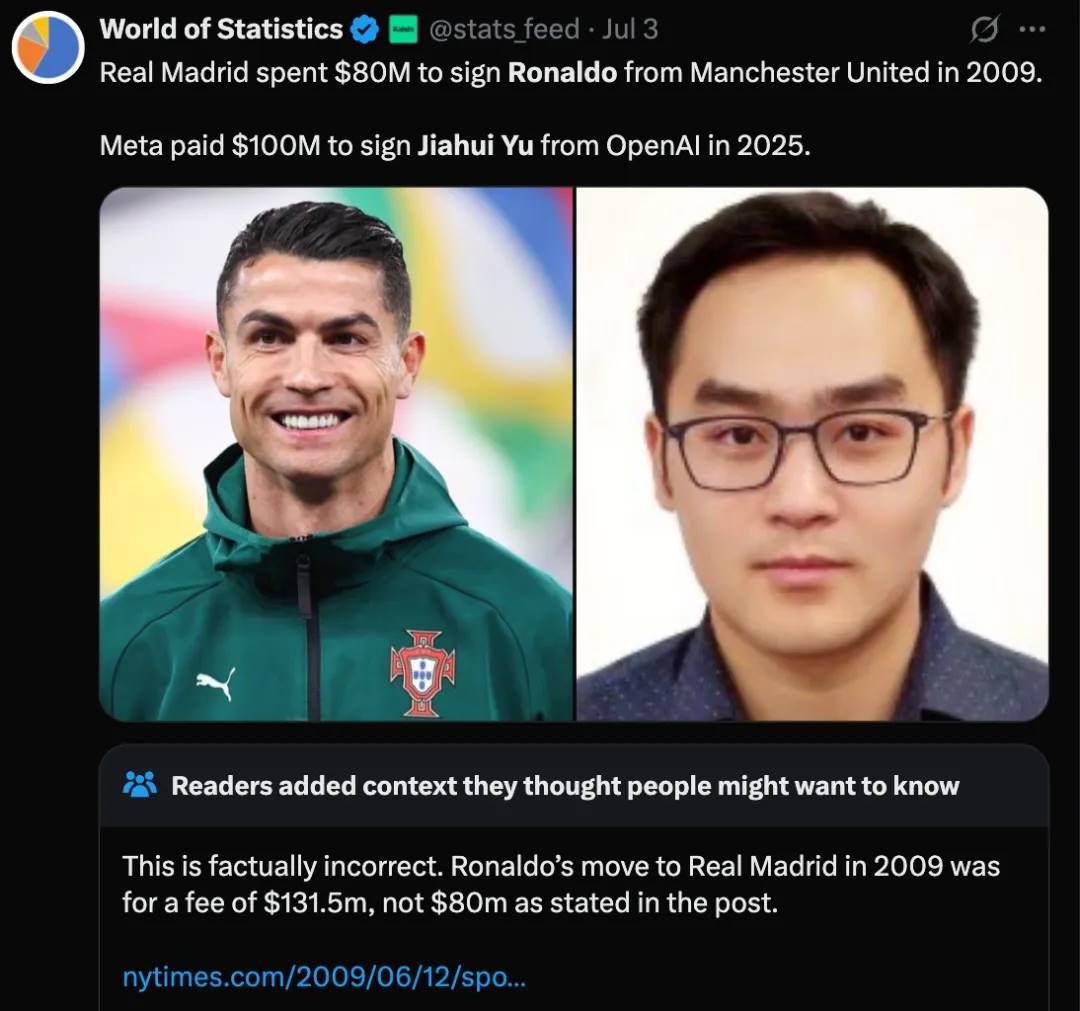
Netizens compare a Chinese AI researcher with Cristiano Ronaldo | Image Source: X
02 Chinese Faces Become "Hot Property"
In this battle of poaching among giants, if you pay attention to their names or surnames, you can find many Chinese individuals.
For example, the Chinese individual next to Cristiano Ronaldo in the previous image is Jiahui Yu, who comes from the Young Scholars Program at the University of Science and Technology of China. He previously worked at Google DeepMind, leading the Gemini multimodal project, then joined OpenAI to participate in the development of models like GPT-4o, GPT-4.1, o3, and o4-mini, before being heavily poached by Meta.
Another Chinese individual poached by Meta from Apple is Ruoming Pang, who reportedly received a total package exceeding $200 million to lure him away. Ruoming Pang worked at Apple for four years, leading the foundational model team for Apple AI/Machine Learning, which primarily develops the foundational models supporting Apple Intelligence.
Before working at Apple, Ruoming Pang spent 15 years at Google, where he participated in speech recognition research and product development, co-developing the Babelfish/Lingvo deep learning framework and the Tacotron 2 speech synthesis system, and was a co-founder and technical lead of Google's global authorization system Zanzibar.

Ruoming Pang | Image Source: His X account
In addition to Ruoming Pang, Meta's list of Chinese poaching targets includes several former Chinese researchers from OpenAI and Google, who previously participated in the development of cutting-edge large model versions like GPT-4, Gemini, and the o-series.
For instance, Huiwen Chang is a graduate of Tsinghua University's Yao Class, obtained a Ph.D. from Princeton University, and worked as a research scientist at Google for over four years, inventing the MaskGIT and Muse architectures. In 2023, he joined OpenAI and contributed to the development of the image generation system for GPT-4o, making contributions in multimodal AI models.
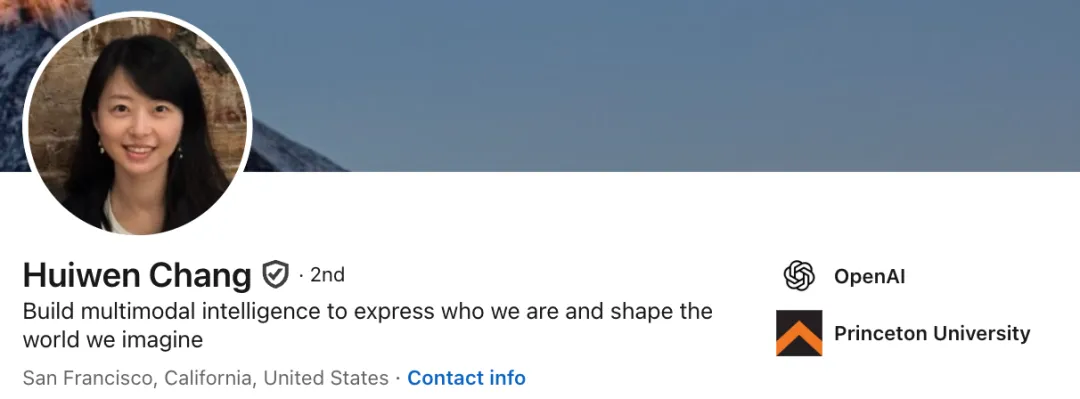
Huiwen Chang | Image Source: Linkedin
For example, Hongyu Ren graduated from Peking University with a bachelor's degree and obtained a Ph.D. from Stanford University. He interned at Microsoft, NVIDIA, Google, and Apple, and after joining OpenAI, he was responsible for the post-training team, focusing on optimizing language model training. He is one of the developers of models like GPT-4o mini and o1-mini.
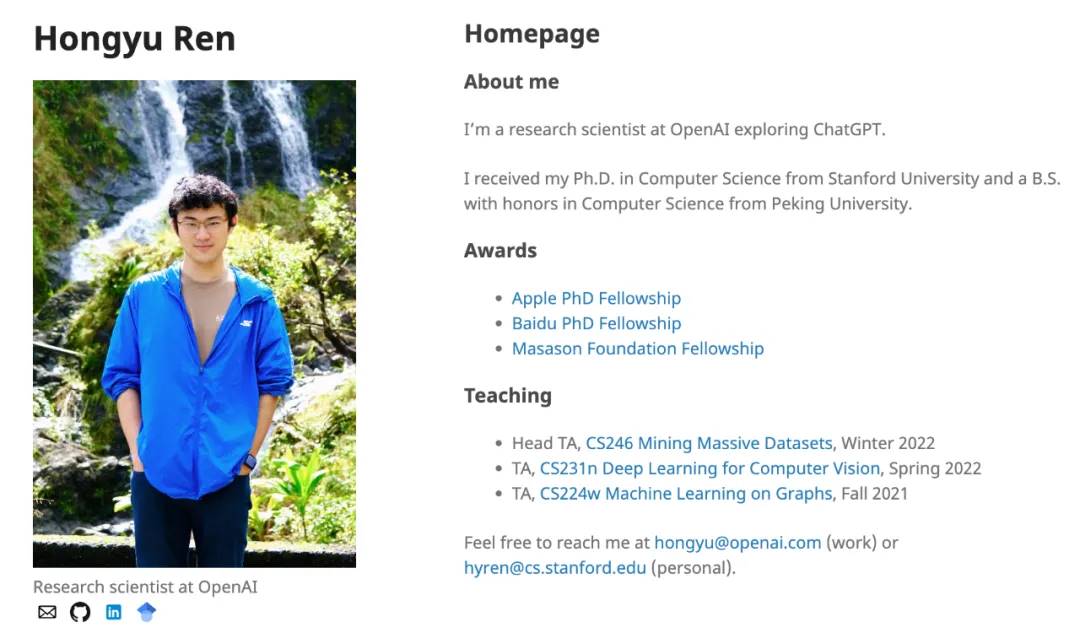
Hongyu Ren | Image Source: His personal website
Another example is Ji Lin, who graduated from Tsinghua University with a bachelor's degree and obtained a Ph.D. from the Massachusetts Institute of Technology (MIT). He joined OpenAI in 2023 as a technical team member and participated in the development of GPT-4o, GPT-4.1, GPT-4.5, the image generation system (4o-imagegen), and the Operator reasoning stack.

Ji Lin, poached by Meta from OpenAI | Image Source: His personal website
In July 2025, Google announced that it would hire the CEO, co-founders, and some R&D staff from the AI coding startup Windsurf, incorporating them into the Google DeepMind team, thus halting OpenAI's acquisition plans for Windsurf.
Among those recruited by Google was Windsurf co-founder Douglas Chen, who is also of Chinese descent, graduated from MIT, and previously worked as a machine learning engineer at Meta and Facebook.

Windsurf co-founder Douglas Chen | Image Source: Linkedin
Apple also relies on some Chinese talent in AI. After Ruoming Pang left, Apple quickly promoted another Chinese engineer, Zhifeng Chen, to take over and continue the development and deployment of the large language models behind Apple Intelligence.
The high density of Chinese faces is not coincidental. According to analyses by some think tanks on authors of papers at top global AI conferences, over 30% of top AI researchers in the U.S. have a Chinese background, a proportion that is even slightly higher than that of researchers born in the U.S.
Musk's preference for Chinese engineers is also evident; many Chinese faces appear in his team photos. In fact, when xAI was founded, five out of the twelve founding researchers were Chinese—Tony Wu, Jimmy Ba, Greg Yang, Zihang Dai, and Guodong Zhang—many of whom had interned or worked at Google, DeepMind, or OpenAI. Sometimes people jokingly say, "Half of xAI is Chinese," and it's not an exaggeration.
At the live launch event for Grok 4, sitting next to Musk and frequently appearing was Tony Wu, now a co-founder of xAI, who had interned at Google DeepMind and OpenAI, done postdoctoral work at Stanford, and worked at Google for a time.
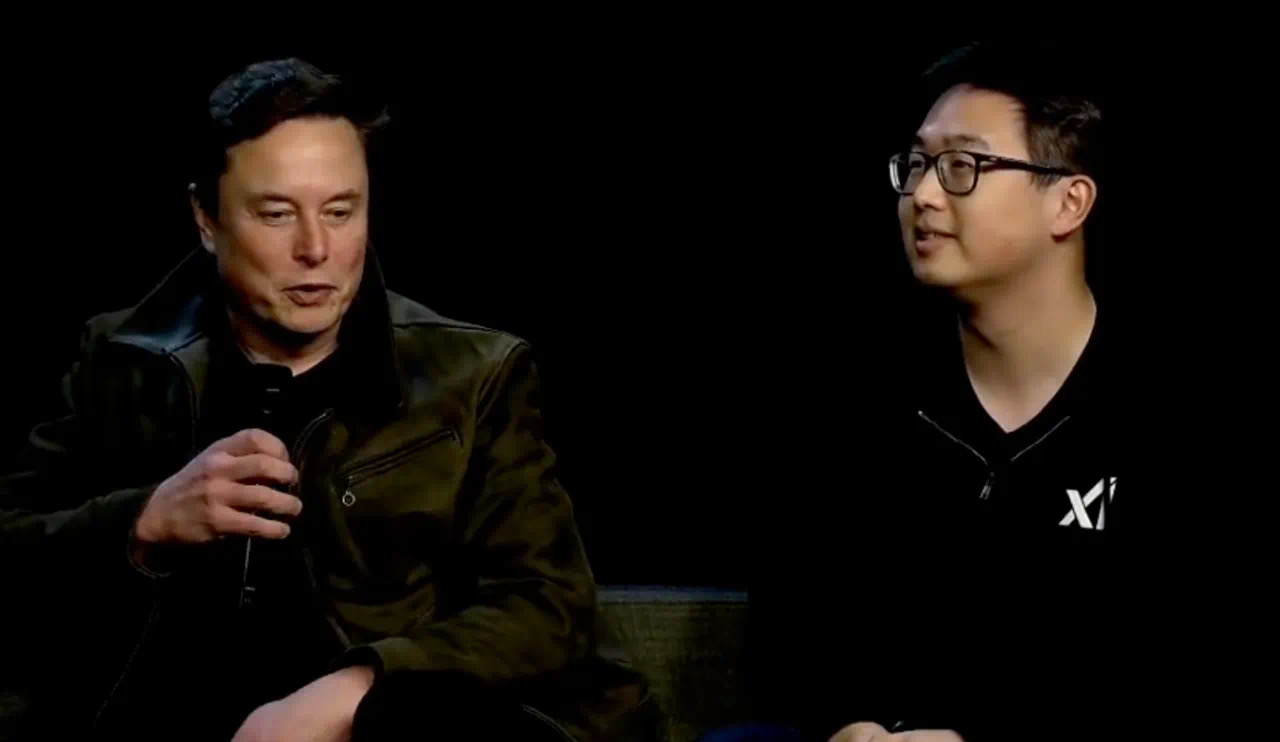
Musk and Tony Wu (right) | Image Source: xAI
This year, there has even been a popular saying that gets joked about and shared in the tech circle: "The AI war is between Chinese people in the U.S. vs. Chinese people in China."
03 Cutting Jobs While Poaching: 99% of the Money Flows to 1%?
However, behind the glamorous high-priced contracts lies another group's anxiety, as this poaching war may only target the top 1% of the pyramid. What about the remaining 99%?
Even "ordinary" senior AI engineers can earn annual packages of $1 million to $1.5 million, which is two to three times higher than traditional software positions. Data from the Levels.fyi platform shows that the average annual package for an E7 level AI engineer at Meta can approach $1.54 million, a figure that is considered upper-tier even in Silicon Valley.
But for many Silicon Valley programmers, the rise of AI and the giants' talent wars bring not only envy but also a tangible sense of crisis: on one side, giants like Meta, OpenAI, and Google are competing for top AI scientists with signing bonuses and annual salaries in the tens of millions or even hundreds of millions; on the other side, ordinary engineers worry about layoffs and being marginalized.
"On one side, we see various LLM experts getting big packages, while ordinary workers are constantly worried about being laid off," someone posted in a forum frequented by Silicon Valley coders, and similar posts on this theme are not uncommon, spreading across various social networking platforms in the Silicon Valley tech circle.
Indeed, the giants are "cutting jobs while poaching." Meta has laid off at least tens of thousands of employees in recent years, especially those working on non-AI projects, implementing a "last in, first out" policy, which this year has been jokingly referred to as the "Squid Game Factory" in the Silicon Valley Chinese coder community. Google is also continuously optimizing, even launching a "voluntary departure compensation plan" to redirect resources to AI projects. Last year, Amazon laid off over 20,000 employees and cut dozens of corporate positions earlier this year, starting a reorganization of AWS-related departments in March.
In July 2025, Microsoft announced it would lay off thousands of employees again, mainly focusing on engineering positions, with over a hundred software engineering jobs cut locally in Silicon Valley, partly due to AI improving productivity.
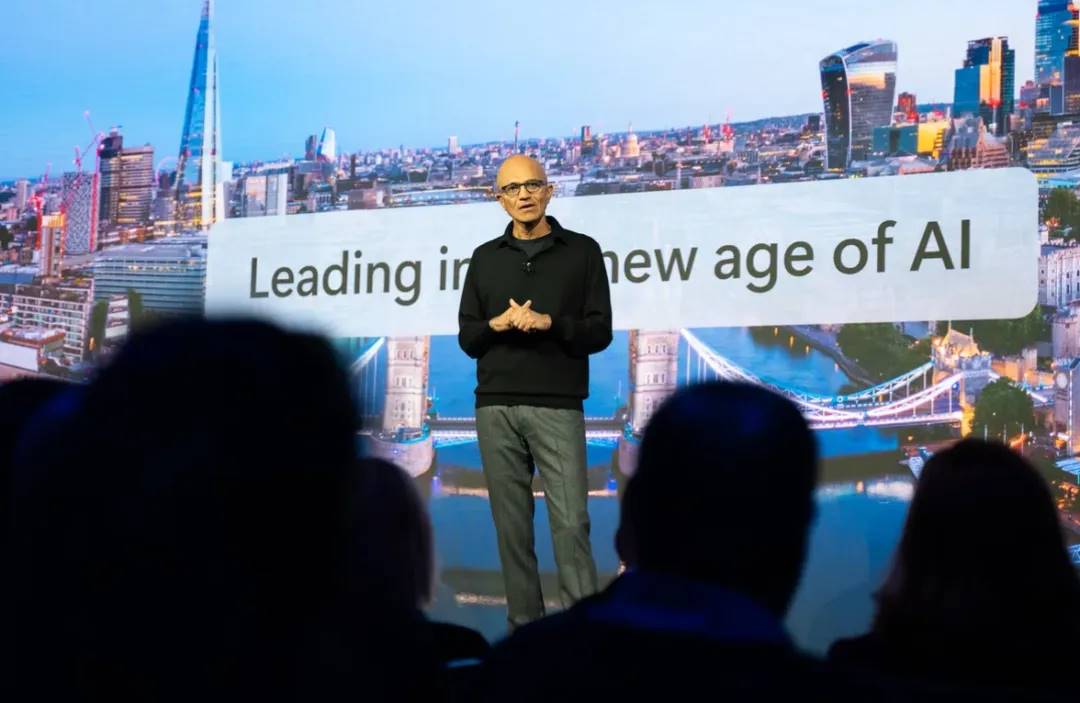
Microsoft CEO Nadella | Image Source: Microsoft
Microsoft CEO Nadella publicly stated in 2025 that 20% to 30% of the code within Microsoft is generated by AI. Similar situations are occurring in other companies; for example, Salesforce executives also stated that about 20% of the code within the company is generated by AI, which has increased engineering team productivity by over 30%, thus reducing the need for programmer hiring.
Some Silicon Valley software engineers believe that as AI coding efficiency improves, the survival of ordinary software engineers is becoming "increasingly difficult." Some even argue that currently, 99% of the money flows to 1% of top AI talent, and there are not many AI positions available; the AI developed by programmers has replaced many jobs, potentially leading to their own obsolescence.
The AI talent war in Silicon Valley is not just a zero-sum game among the giants. Whether it’s AI talent, ordinary software engineers, or Silicon Valley giants, everyone now has to accept this high mobility and short-termism, as well as a reality:
A large amount of money, more money, is flowing only to AI.
免责声明:本文章仅代表作者个人观点,不代表本平台的立场和观点。本文章仅供信息分享,不构成对任何人的任何投资建议。用户与作者之间的任何争议,与本平台无关。如网页中刊载的文章或图片涉及侵权,请提供相关的权利证明和身份证明发送邮件到support@aicoin.com,本平台相关工作人员将会进行核查。




